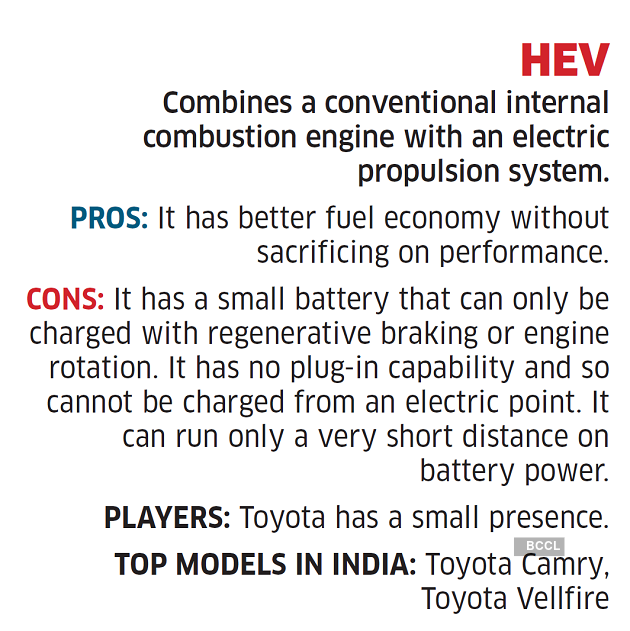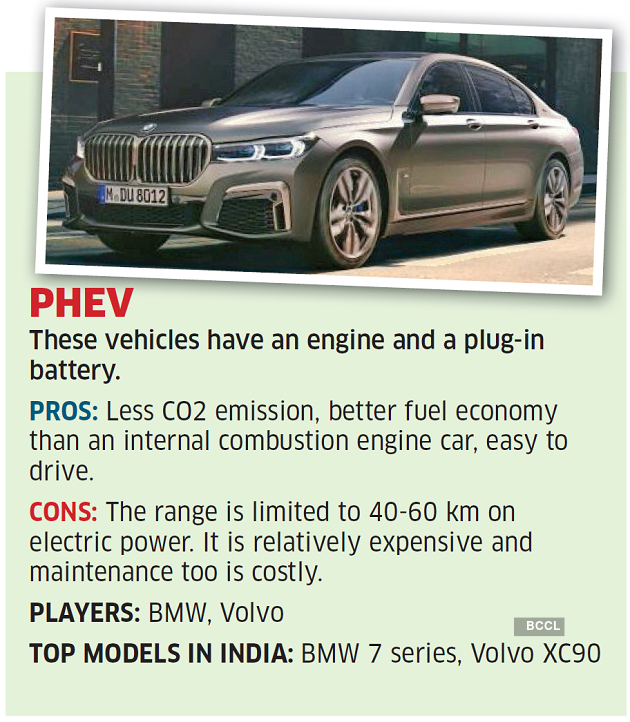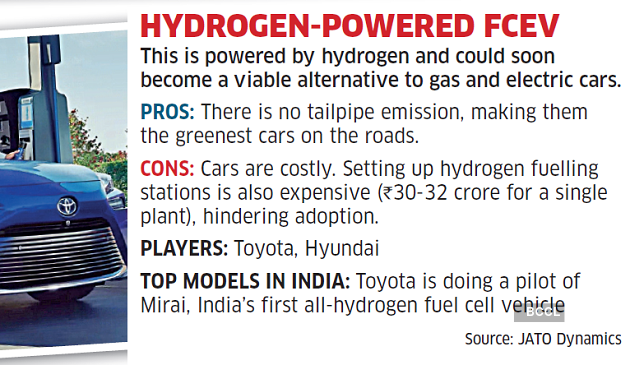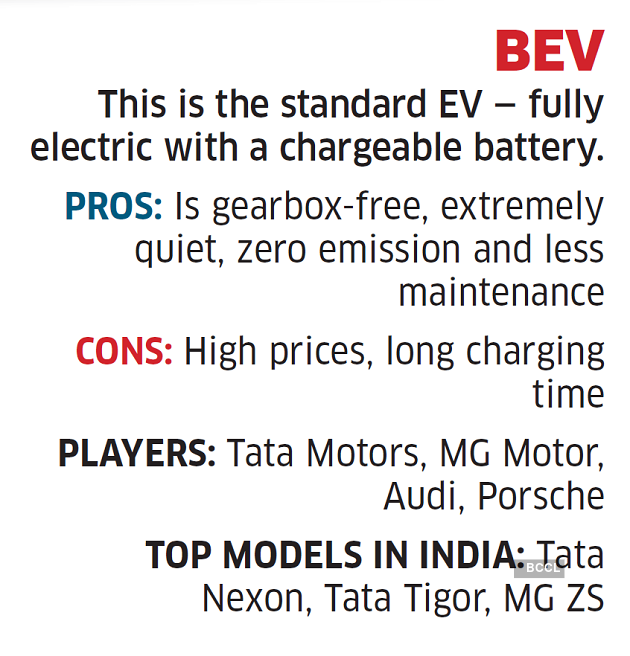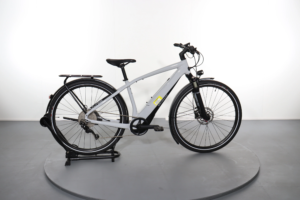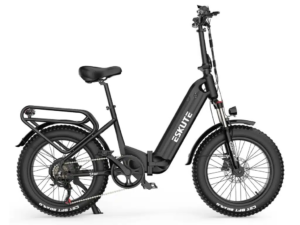
[ad_1]
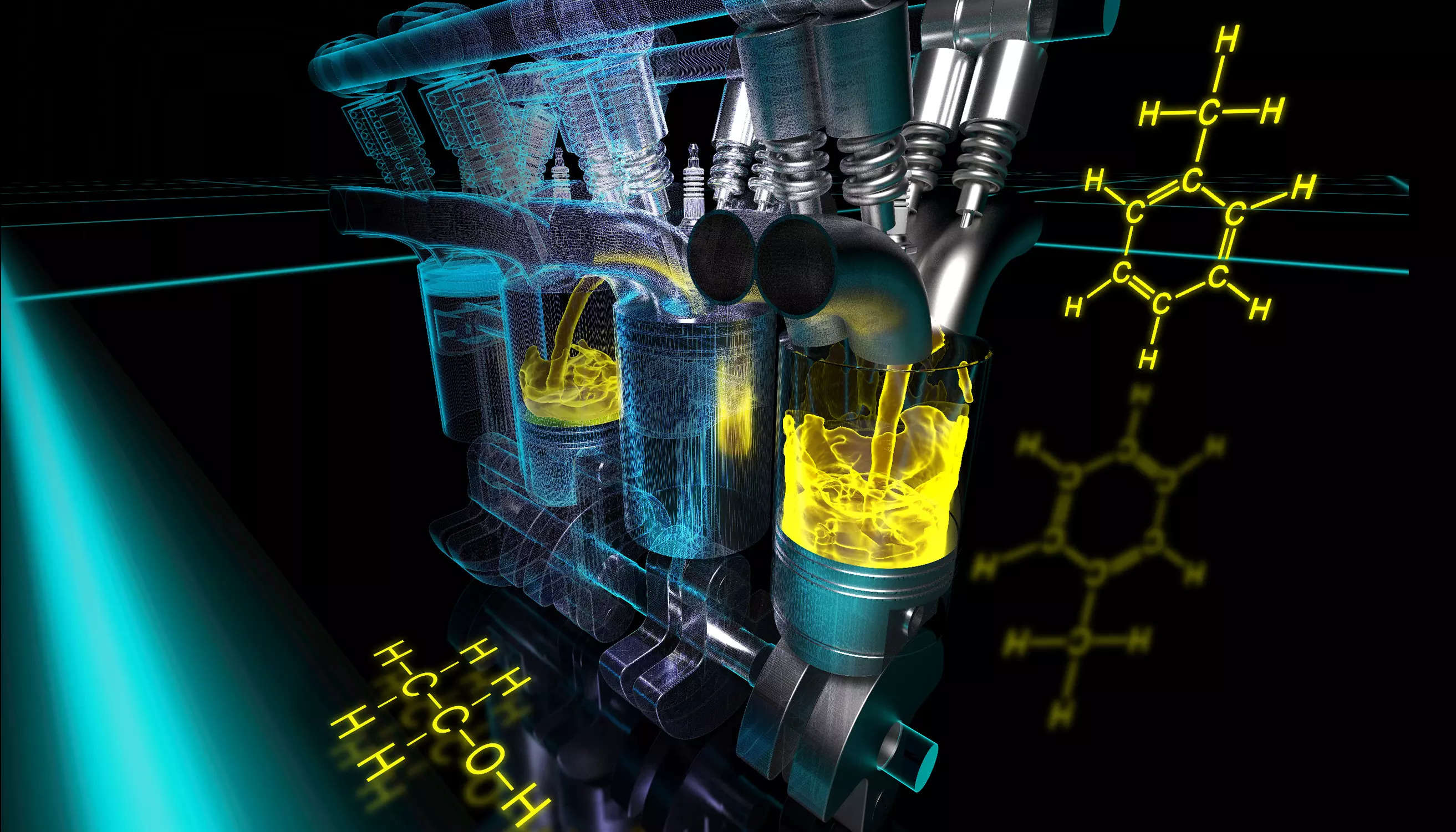
Even as the electric vehicle (EV) industry is finding its feet in India, automakers are offering a range of engine and fuel technologies. As gas prices soar, consumers are also thinking differently about the cars they drive and the fuels they use. ET takes a look at the pros and cons of various engine technologies that are being offered by automakers — battery-operated electric vehicles (BEV), mild hybrid electric vehicles (MHEV), hybrid electric vehicles (HEV), plug-in hybrid electric vehicles (PHEV) and hydrogen-powered fuel-cell electric vehicles (FCEVs).
The country’s largest carmaker Maruti Suzuki says it will be technology-neutral and focus on a range of engine options to reduce CO2 emissions. For Tata Motors, EVs account for 7% of their portfolio, which is expected to go up to 25 % in the next five years. Mahindra & Mahindra, which is betting big on EVs, will achieve 20% penetration in the passenger EV space in 2025-27. Auto companies like Toyota and Hyundai have started developing FCEVs, which not only give zero emissions but are more efficient than gas-powered vehicles.
We have to employ all possible technologies to address the non-EV segment to make them more environment-friendly. Maruti Suzuki will be adopting a technology-neutral approach. It doesn’t matter which technology we employ as long as it works towards a better environment. In this mission, we are working on all technology options like EVs, hybrids, CNG and biofuelsHisashi Takeuchi, MD & CEO, Maruti Suzuki India
With EVs, we will be targeting a 25% penetration in our portfolio. This will include a mix of body styles and ranges to cater to the diverse requirements of customers. We intend to invest Rs. 15,000 crore in EV segment to offer a portfolio of 10 EVs by 2025 and to further develop the enabling ecosystemShailesh Chandra, MD, Tata Passenger Electric Mobility and Tata Motors Passenger Vehicles
The key is to use all technology formats to reduce fossil fuel consumption. I believe that all technologies will coexist. The manufacturers will have to adapt to changing scenarios in the power mixVikram Kirloskar, VC, Toyota Kirloskar
Source: JATO Dynamics
Even though epitaphs are being written for the internal combustion engine (ICE), it is still the dominant choice for cars in FY2022, with more than 90% market share, followed by MHEV at 8.5% and BEVs at 0.7%, according to data by Jato Dynamics. As per industry estimates, EV penetration in India will be 8-10% by 2030. Electric technologies and alternative fuels will all play a role in India’s mobility future, say experts
Though epitaphs are being written for the internal combustion engine (ICE), it is still the dominant choice for cars in FY2022, with more than 90% market share, followed by MHEV at 8.5% and BEVs at 0.7%, according to Jato Dynamics. As per industry estimates, EV penetration in India will be 8-10% by 2030. Electric technologies and alternative fuels will all play a role in India’s mobility future.
[ad_2]
Source link

